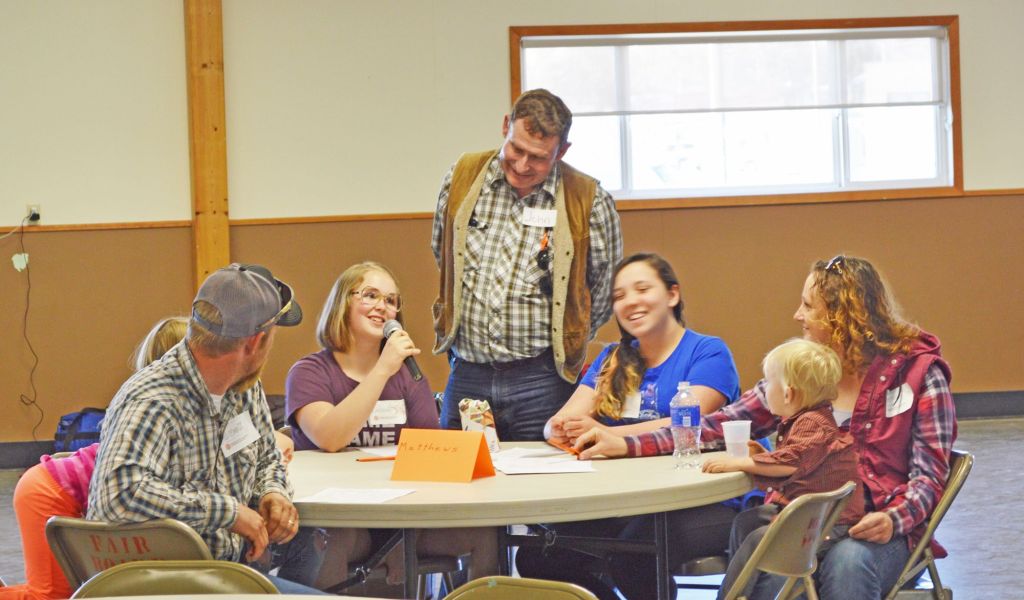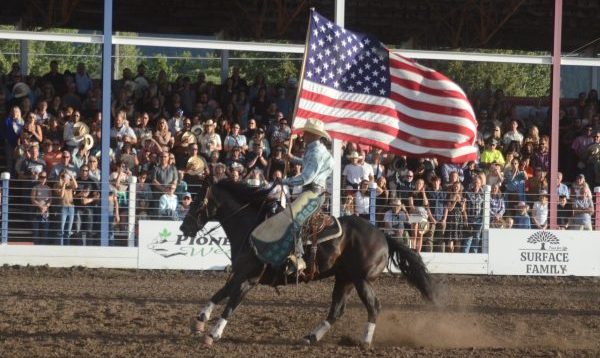Urban and rural kids trade places
Published 2:17 pm Monday, April 20, 2015

- Steve Tool/Chieftain John Williams (standing), hands of the mic to 4-H Urban 2 Rural Exchange student from Portland Lucinda Drake, who is introducing herself to the audience at the program's potluck dinner, April 16 at Cloverleaf Hall.
The 4-H Urban 2 Rural Exchange is starting year 10 of its successful program. The exchange involves students from both Wallowa County schools and the best and brightest from Multnomah County’s Sunnyside Environmental School exchanging places for several days to experience life on “the other side” — an opposite side of the state, that is.
Wallowa County program participant Debi Schreiber said the exchange program resulted from an incident during the 2005 Oregon Legislature session, which is when lawmakers were trying to devise a wolf management plan. Children from the Sunnyside school singing songs and reciting poems in praise of wolves crowded into the hearing room, leaving ranchers who had traveled long distances to testify, outside the session.
Trending
A concerned Grant County commissioner who attended the event approached Sunnyside about allowing the ranchers to present their side of the wolf issue to the students. The school agreed, and several assemblies later the exchange program was born. Wallowa County joined the program in its second year.
Schreiber said her own daughter has participated in the program and traveled to Portland more than once.
This year, eight children and two chaperons from Sunnyside school made the journey to Wallowa County to experience the rural side of life. These participants stayed in Wallowa County from April 16 to the 21st.
After their arrival from Portland, the Sunnyside children and chaperons were treated to a potluck and orientation at Cloverleaf Hall.
There, the students were introduced to, and ate a sumptuous meal with their host families while learning the do’s and don’ts of the program and rural life in general. Wallowa County Extension Agent John Williams passed around a microphone while program participants introduced themselves to the audience.
As the program participants left the hall with their host families, Williams hailed the program as an unqualified success. “What we’re doing here is putting kids and families together and letting it happen. We think it’s an effective process. Really, this is all about the kids.” Williams said.









